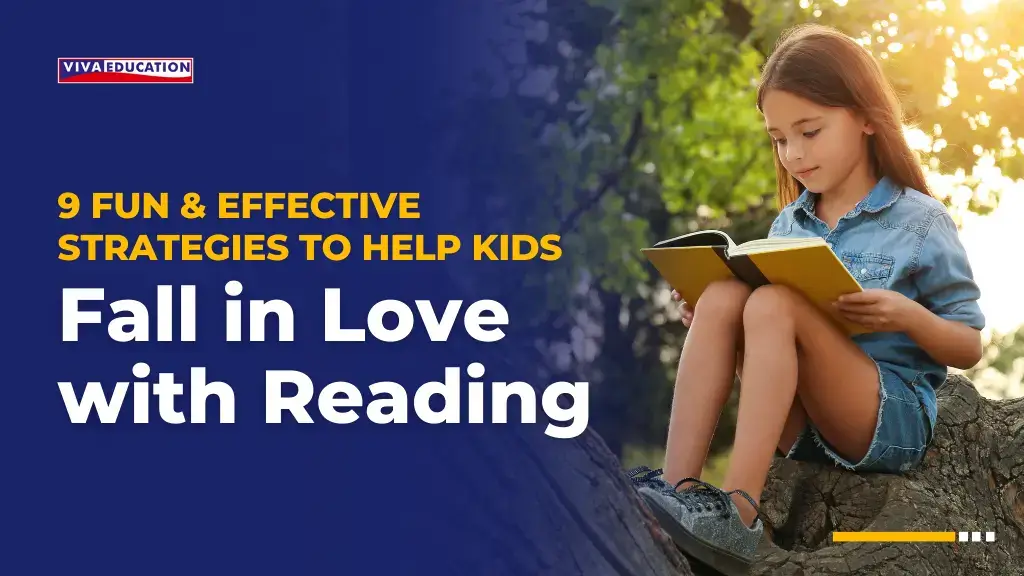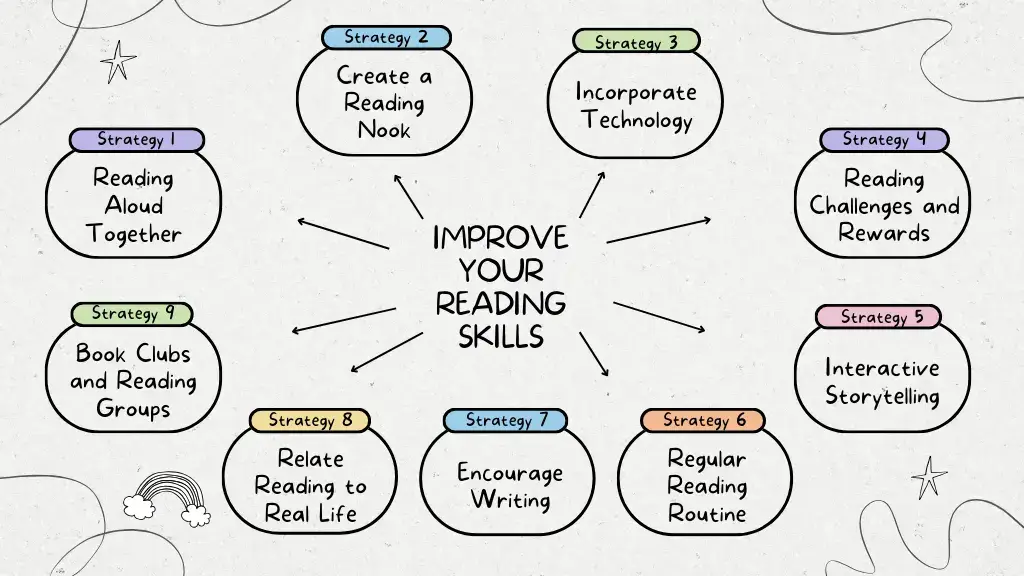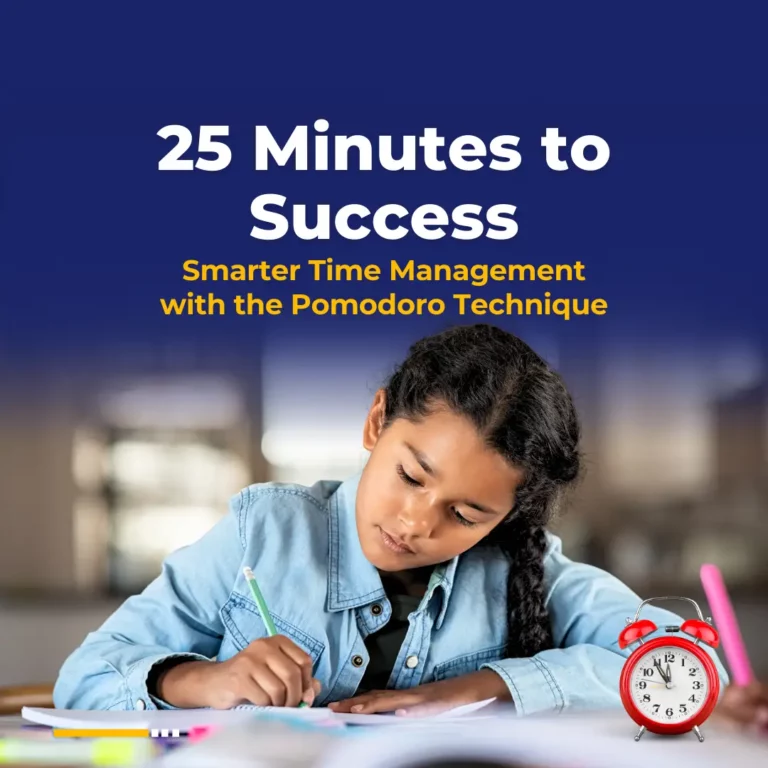9 Fun & Effective Strategies to Help Kids Fall in Love with Reading
- Students
- June 28, 2024
- Viva Education

Reading is a fundamental skill that primarily accounts for an individual’s academic success and lifelong learning. As a practice, it boosts a child’s ability to learn across different disciplines, and helps them master logic, judgment and cause-and-effect relationships, while improving their concentration and attention span.
Ironically, however, there are many children who perceive reading to be just a chore rather than an enjoyable activity. Given the complexity of the text they have to go through or the sheer volume of reading assignments they have to grapple with, their perception of reading per se seems to be irrefutable.
It’s no surprise that improving reading skills and making reading simple, engaging, and enjoyable are major concerns for educators today. This article explores creative strategies that can make reading not just a skill to master but an adventure to enjoy.
The Importance of Reading Skills
Before discussing the creative strategies for reading, let’s first understand why reading skills are so important. As we know, reading proficiency is generally linked to better academic performance across different subjects.
However, its significance is not restricted to helping a child obtain excellent grades or enabling a youth to compete for a bright professional career. In fact, it also improves cognitive development and enhances critical thinking skills that help us become smarter, more sensible, intelligent and empathetic human beings.
Another important benefit of reading is that it expands vocabulary, improves writing skills, and fosters a lifelong love for learning. With these benefits in mind, let’s touch upon some of the strategies for improving reading skills in a simple and enjoyable way.

Strategy 1: Reading Aloud Together
Reading aloud is one of the most effective ways to improve reading skills. It not only helps in improving pronunciation and fluency but also boosts comprehension.
Parents and teachers can be instrumental in making this practice a daily ritual. Choose engaging and age-appropriate books, and take turns reading paragraphs or pages.
For younger children, the experience of animated reading sessions with different voices for different characters from a storybook can be thoroughly enjoyable.
Strategy 2: Create a Reading Nook
A cozy and inviting reading space can significantly impact a child’s desire to read. To provide this space, set up a reading nook with comfortable seating, good lighting and a selection of books that cater to the child’s interests.
Personalize the space with pillows, blankets, and posters of favorite book characters. This dedicated area can make reading feel like a special and enjoyable activity rather than a routine task without fun.
Strategy 3: Incorporate Technology
Technology can be a powerful tool to hone and boost a child’s reading skills. Numerous educational apps and e-books available today can make reading interactive and fun.
Apps like Epic!, Reading Eggs and Khan Academy Kids offer a gamut of reading materials, games and activities, tailored to different reading levels. These resources can make reading more engrossing and provide instant feedback, helping students improve their skills in real time.
Strategy 4: Reading Challenges and Rewards
Gamifying the reading experience can motivate students to read more. Create reading challenges with specific goals, such as reading several books in a month or exploring different genres.
Offer rewards for achieving these goals, such as a special treat, a new book, or a fun outing. This approach makes reading more exciting besides instilling a sense of accomplishment.
Strategy 5: Book Clubs and Reading Groups
Social interaction can greatly enhance the reading experience of children and make them more and more curious to explore new territories of learning on their own. Organise book clubs or reading groups where children can discuss what they’ve read, share their thoughts, and ask questions.
This collaborative environment will encourage them to develop a deeper understanding of the world around them, and enhance their critical thinking skills. Moreover, discussing books with peers can make reading a more social and enjoyable activity.
Strategy 6: Interactive Storytelling
Transform reading into an interactive experience with storytelling sessions. Encourage students to act out scenes from the book, create their endings, or draw illustrations of their favorite parts.
This hands-on approach can help students better understand and remember the story, making reading more absorbing and enjoyable.
Strategy 7: Relate Reading to Real Life
Connecting the content of books to real-life experiences can make reading more relevant and interesting.
For instance, if a book is about nature, plan a family outing to a park or botanical garden. If a story revolves around historical events, visit a museum or watch a documentary together. These activities can deepen their understanding of history, nature, etc. and make the reading material come alive.
Strategy 8: Encourage Writing
Reading and writing go hand in hand. Encourage students to write their own stories, book reviews, or even letters to their favorite authors.
Writing about what they read can improve comprehension and reinforce learning. It also allows students to express their creativity and personal connection to the reading material.
Strategy 9: Regular Reading Routine
Consistency is pivotal to improving any skill, and reading is no exception to it. Keeping in mind the need to be consistent, establish a regular reading routine that fits into the student’s daily schedule.
Whether it’s 20 minutes before bed or a dedicated time after school, a set routine can play a major part in building a reading habit and improve skills over time.
A Journey of Lifelong Learning
In nutshell, fostering a love for reading is a gift that keeps on giving. By these strategies into practice and tailoring them to your child’s interests, you can transform reading from a chore into an exciting adventure.
Never forget that a child who enjoys reading is a child who is more likely to become a lifelong learner, prepared to tackle any challenge that comes their way. So, turn off the screens, open a book to your child, and embark on a journey filled with wonder, knowledge, and the sheer joy of getting lost in a good story.



